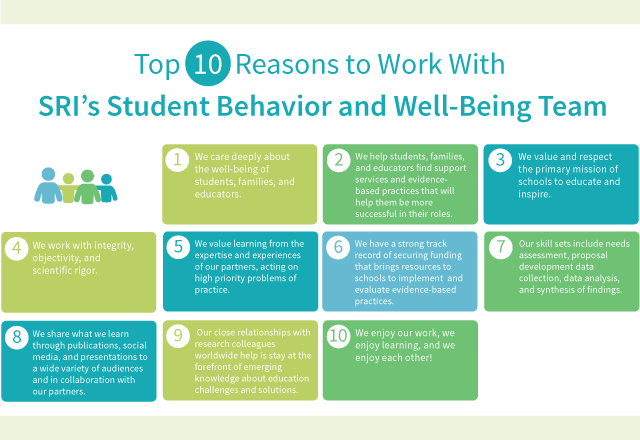Practice-based coaching (PBC) promotes a strong collaborative partnership between teachers and coaches to facilitate the use of effective instructional practices. The PBC process includes skills instruction on BEST in CLASS practices, shared goals and action planning, implementation support, classroom observation, and reflection and feedback.
After a turbulent 2020-2021 school year, it is more important than ever that educators have feasible and effective options to support students’ foundational social-emotional skills. Prior studies have found that students who participate in social-emotional learning (SEL) programs improve their behavioral and academic functioning and reduce their challenging behaviors.1 When selecting an SEL program, educators … Continue reading Social-Emotional Learning Program Study: Tools for Getting Along
We know that research informs practice in education, but how does practice inform research? Dr. Michelle Woodbridge, one of our lead researchers, recently attended a webinar on supporting students impacted by racial stress and trauma. In our latest blog post, she shares her response to that learning experience (spoiler alert – it was intense!) and her commitment to practice being a better researcher.
We were presenting to a group of teachers about our project examining the effects of a group-based intervention for middle schoolers experiencing traumatic stress. I was describing the effects of trauma on students’ academic performance when a teacher stood up and loudly exclaimed, “But what about OUR trauma? Who is helping US?”
Our team works with state and local education agencies to select, implement, and evaluate programs that meet their high priority education needs. Whether you’re a school leader or teacher, an intervention developer, or a funder looking to invest in effective behavior management and socioemotional interventions, you’ll find a variety of benefits of partnering with us.
In this first blog entry, we introduce our research team and describe why we love our work so much. Our team of researchers, evaluators, and technical assistance providers brings a wealth of expertise, with a common emphasis on the social and emotional well-being of children from socioeconomically disadvantaged backgrounds.









